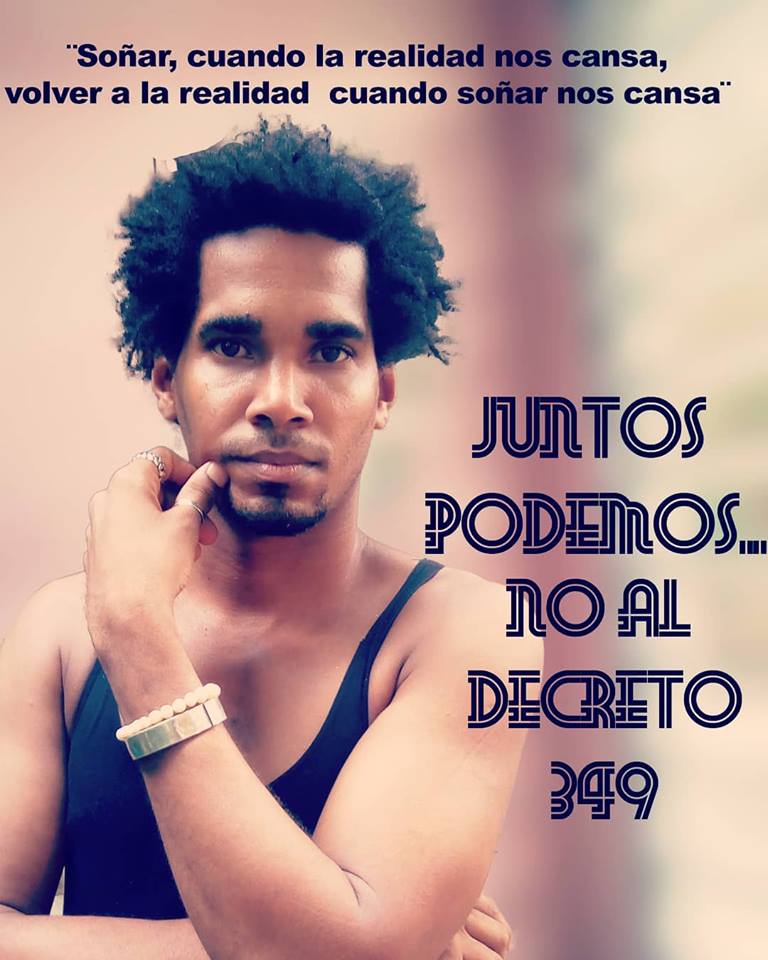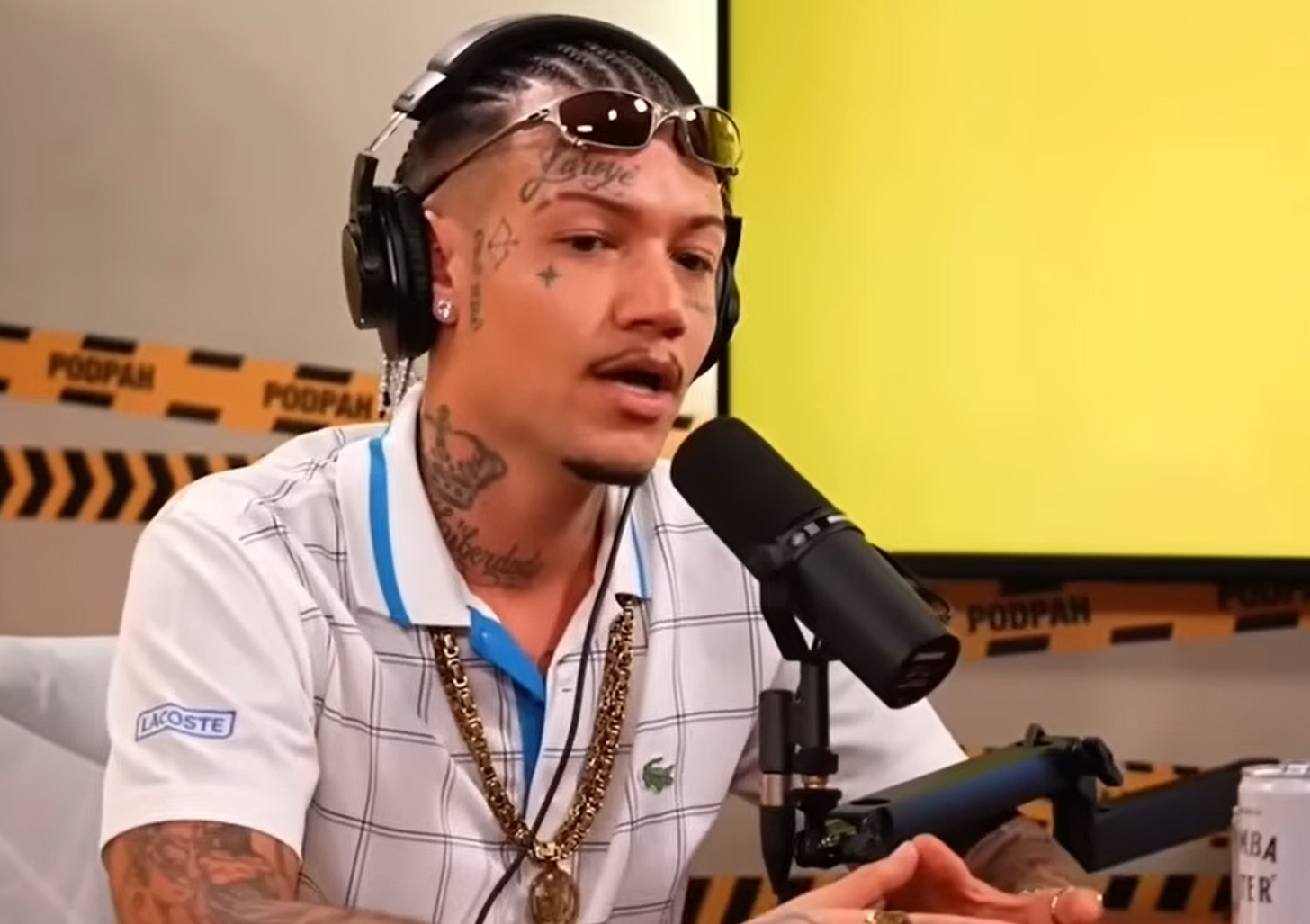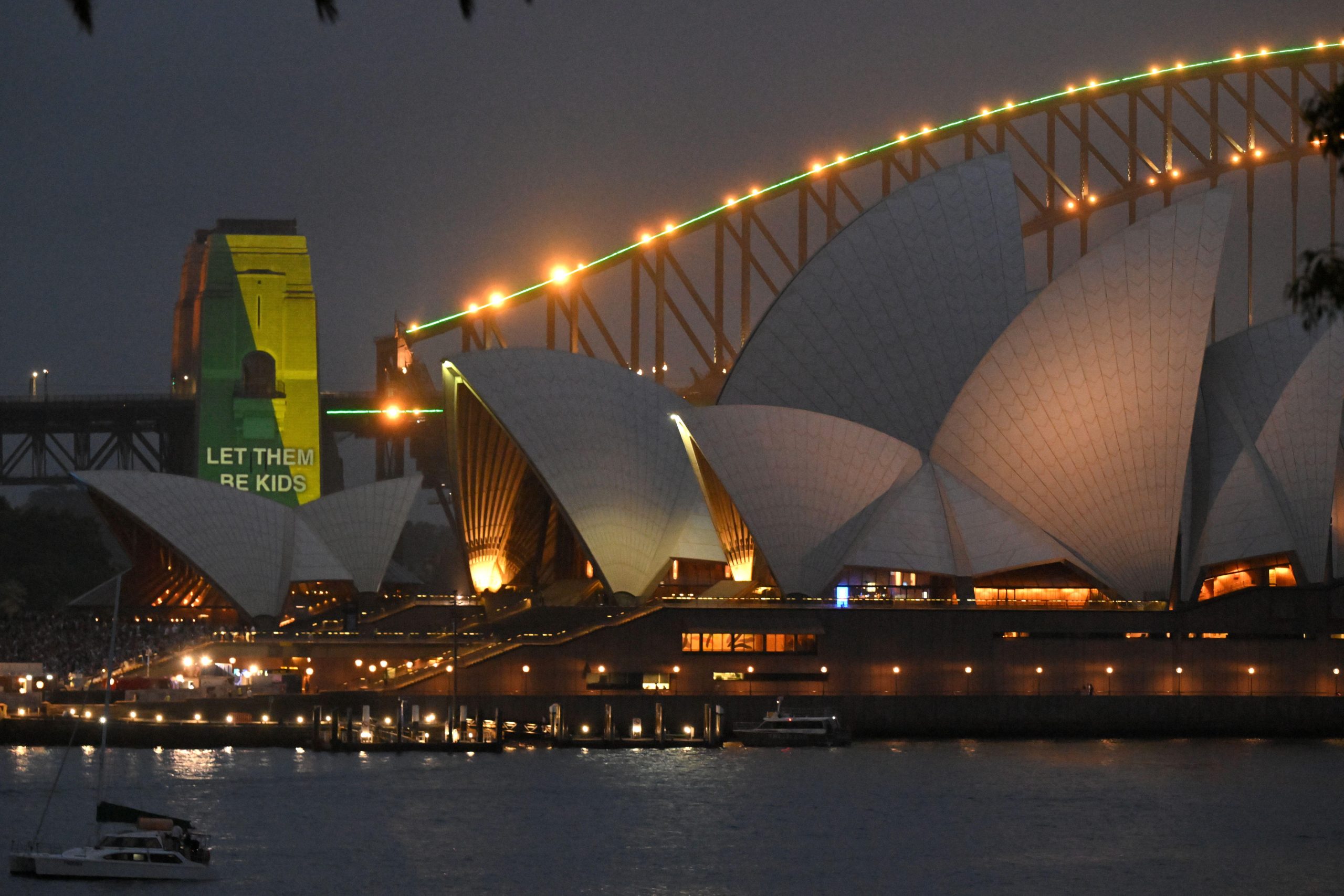[vc_row][vc_column][vc_media_grid grid_id=”vc_gid:1533806465014-9fa23910-6976-8″ include=”101950,101948,101949,101952,101947,101951″][vc_column_text]To an outsider, the most startling part of artist Luis Manuel Otero Alcántara’s arrest on 21 July for attempting to protest on the Capitol steps in Havana was the passivity, bordering on fearful ignorance, of his fellow Cubans at the scene. When he shouted and resisted, there was no response. When officers forced his head back to get him into the car, no one batted an eye.
Such is a reality Otero Alcántara and Yanelyz Nuñez, founders of the 2018 Index award-winning Museum of Dissidence, and the independent art community are working to change for the millions of Cubans whose freedom of expression remains severely constrained in the post-Castro era. Describing the challenges modern Cuba faces, Alcántara and Nuñez said “there are two political extremes that fail to dialogue and, in the background, that people are confused, apathetic, saturated with politics, and repressed by fear.”
As Index fellowships and advocacy officer Perla Hinojosa says, “When your freedoms are limited for so long, it becomes natural that when you try to express yourself in a different manner, you are stopped by authorities, so I’m assuming that the Cuban people are desensitised.”
By covering themselves in excrement and demanding “free art,” the artists planned to emphasise that “independent artists are shit for the Cuban state” as Otero Alcántara said after two days’ imprisonment and beatings. He added that they are portrayed as dissidents and lack a platform to engage with the public, much less the government, on legislation like Decree 349, a harsh new law allowing the government to sanction what art can be displayed or exchanged in private settings. Otero Alcántara believes it is “a very clear response” to the Museum of Dissidence’s independent art biennial, held in May despite government attempts to derail it.
While only Nuñez could carry out the protest and demand a meeting with the minister of culture regarding Decree 349, in its aftermath, the artists catalysed a movement of peaceful resistance, digital campaigning and public dialogue to draw national attention to the law and culture of artistic censorship in Cuba. Nuñez, Otero Alcántara and Amaury Pacheco and Iris Ruiz, who were also arrested, have taken the protest to social media, using the hashtags #NOALDECRETOLEY349 (#NOTODECREELAW349) and #artelibre (#freeart) on their Facebook page representing Cuba’s independent artists.
Pacheco is assembling a gallery of Cuban and international artists endorsing the campaign’s phrase: “together we can… no to Decree 349, the law that converts art into a crime.” Featured visual and performing artists like Damián Valdéz Dilla and René Rodríguez tell Cubans that “you are stronger than you think” and “don’t count the days… make sure your days count.” Such messages serve to invigorate a nation with a culture deeply rooted in the suppression of unsanctioned ideas. In his profile, Otero Alcántara encourages the public to “dream when reality tires us, to return to reality when dreaming tires us.”
Hinojosa believes “that this work embodies what meaningful activism against censorship looks like. You can be arrested and threatened but you know you have rights and are willing to stand up for them. They are creating dialogue around the issue for the betterment of themselves and their communities.”
Apart from digital activism, the artists are hosting a public debate in the first week of August. The participating independent artists and journalists have raised concerns that Decree 349 offers a “large margin of action for Cuban censors.” Their objective is to include artists from Cuba and the international community in the conversation and propose a cultural policy that is more considerate of artistic expression. Alcántara and Nuñez believe that “We belong to a generation that wants urgent improvements. A generation that, although it has no political culture, knows what it wants.”
Hinojosa says “Index aims to amplify fellows’ work so that it doesn’t go unseen and provide international support for their activism. This is essential to pressure the government and create dialogue with the community, to tell the Cuban people that it is important to speak out.”
Do you agree with the Museum of Dissidence that artists in Cuba should not be criminalised for their work? If so, please sign their petition against Decree 349.[/vc_column_text][vc_video link=”https://youtu.be/-6JnYDCLKIE”][/vc_column][/vc_row][vc_row][vc_column width=”1/4″][vc_column_text]
Artistic Freedom
[/vc_column_text][/vc_column][vc_column width=”3/4″][vc_column_text]
Index encourages an environment in which artists and arts organisations can challenge the status quo, speak out on sensitive issues and tackle taboos.
Index currently runs workshops in the UK, publishes case studies about artistic censorship, and has produced guidance for artists on laws related to artistic freedom in England and Wales.
Learn more about our work defending artistic freedom.[/vc_column_text][/vc_column][/vc_row][vc_row][vc_column width=”1/4″][vc_column_text]
Awards Fellowship
[/vc_column_text][/vc_column][vc_column width=”3/4″][vc_column_text]
Index works with the winners of the Freedom of Expression Awards Fellowship to help them achieve goals through a 12-month programme of capacity building, coaching and strategic support.
Through the fellowships, Index seeks to maximise the impact and sustainability of voices at the forefront of pushing back censorship worldwide.
Learn more about the Freedom of Expression Awards Fellowship.[/vc_column_text][/vc_column][/vc_row][vc_row][vc_column][vc_basic_grid post_type=”post” max_items=”4″ style=”load-more” items_per_page=”4″ element_width=”6″ grid_id=”vc_gid:1533806465027-3ff50ed2-b280-7″ taxonomies=”7874, 23772″][/vc_column][/vc_row]





